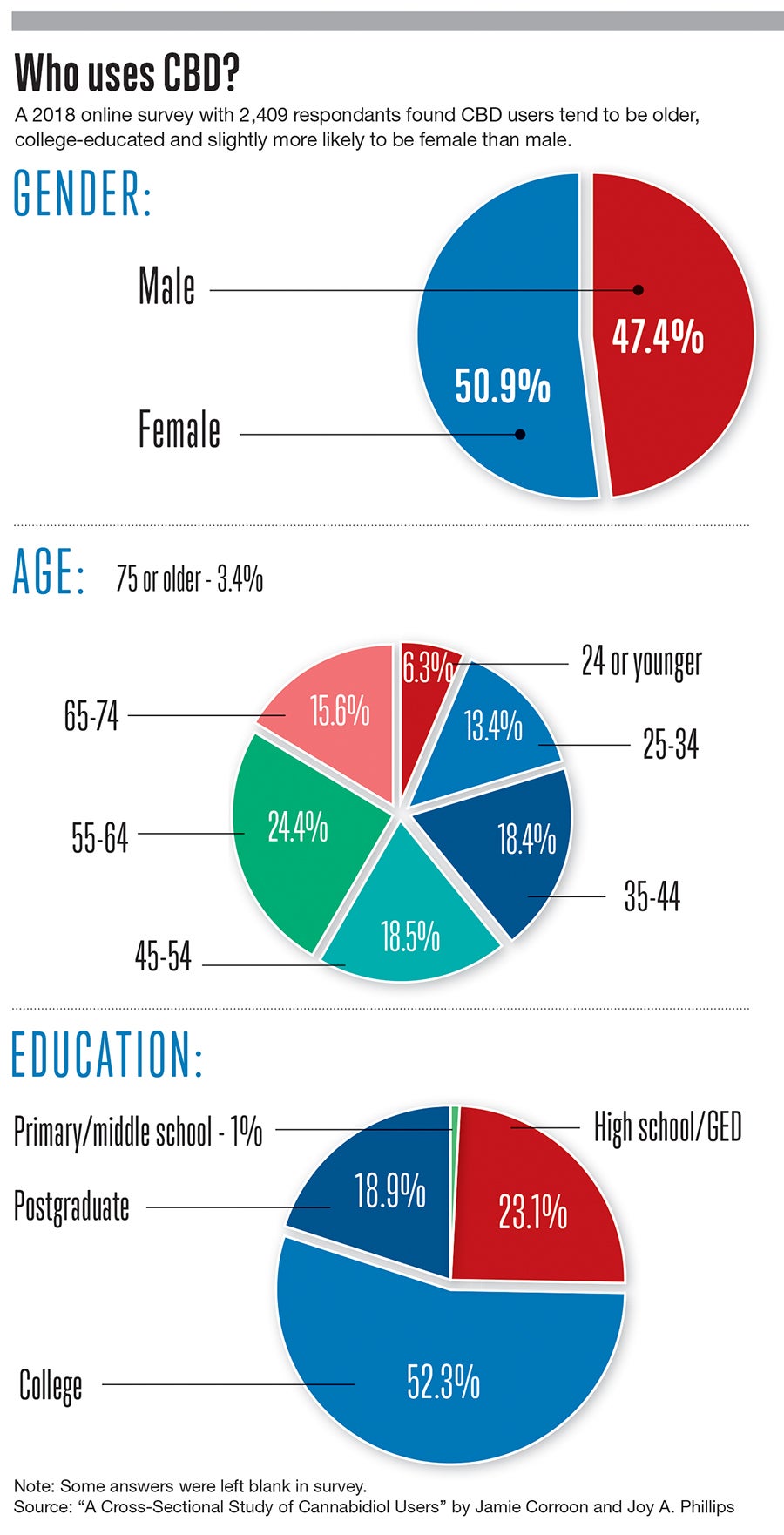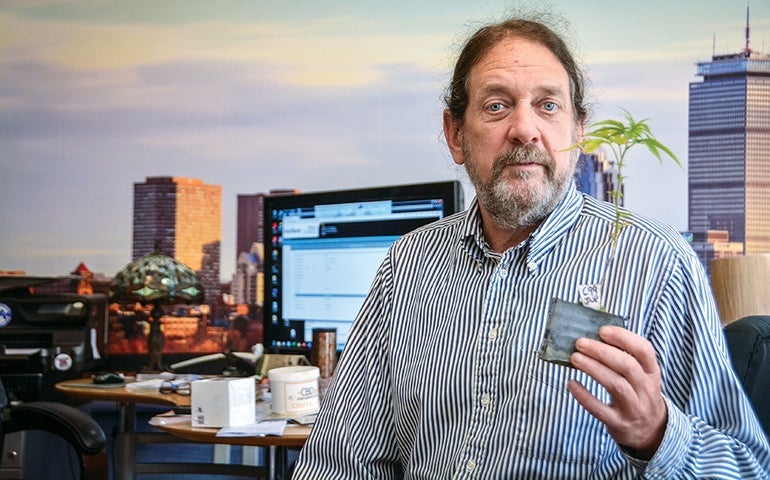Barely over three years ago, Bill Downing, one of the Massachusetts’ most well-known cannabis legalization advocates, was arrested and charged with illegally selling cannabidiol, a hemp product known as CBD, out of his Boston retail shop.
Today, Downing gets referrals from physical therapists, chiropractors and oncologists. Little else may better illustrate how much the public perception around CBD has changed.
“Eventually, people will understand what the truth is,” said Downing, the owner of CBD Please in Framingham, “that it’s almost inevitable, that superstition falls by the wayside and truth withstands the test of time.”
Doctors aren’t in such agreement. But just when everyone is talking about cannabis being legal to use in Massachusetts, pot’s more straight-edged, buttoned-up cousin is stealing much of the spotlight.
CBD is the non-psychoactive hemp-based drug being credited with everything from eliminating seizures and curing chronic pain to relieving anxiety and helping those with autism.
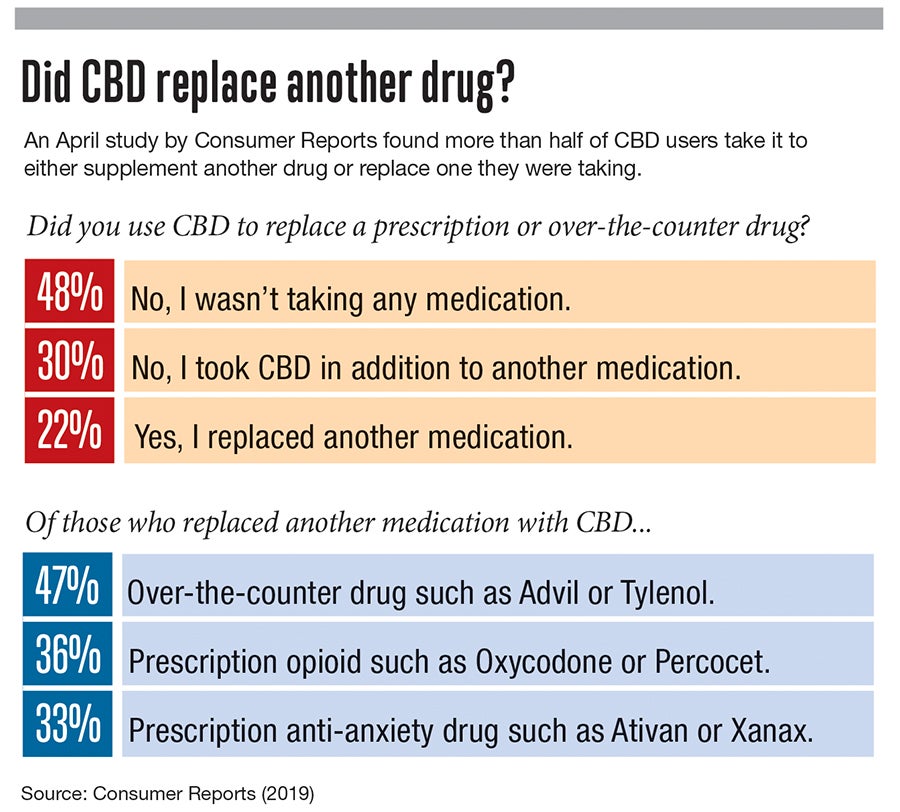
Widely accepted
Suddenly, CBD seems to be everywhere: in coffee, gummies, flavored liquid drops, shampoo, and body creams and lotions. CVS and Walgreens began selling CBD products this year.
Ben & Jerry’s said last month it’s creating a CBD ice cream once CBD is legalized for use nationwide in food and beverages, and the fast food chain Carl’s Jr. tested a CBD-infused burger at one Denver store in April.
If the U.S. Food & Drug Administration gives approval for use in food and drinks, it could be off to the races for CBD-infused menu items everywhere. Three out of four chefs told the National Restaurant Association in a survey released in January that CBD- or cannabis-infused food and drink was the top restaurant trend.
Unlike marijuana, CBD does not contain tetrahydrocannabinol, or THC, the compound making people feel high. That difference only recently became more pronounced with two federal regulatory changes last year.
Hemp, from which CBD is derived, was made legal to grow in a new federal farm bill effective in 2020, which for the first time differentiated between hemp and marijuana. The U.S. Drug Enforcement Administration reclassified one cannabidiol drug from Schedule 1 – those with no legal use, including heroin and LSD – to Schedule 5, a category including far lower potential for abuse, such as the cold medicine Robitussin.
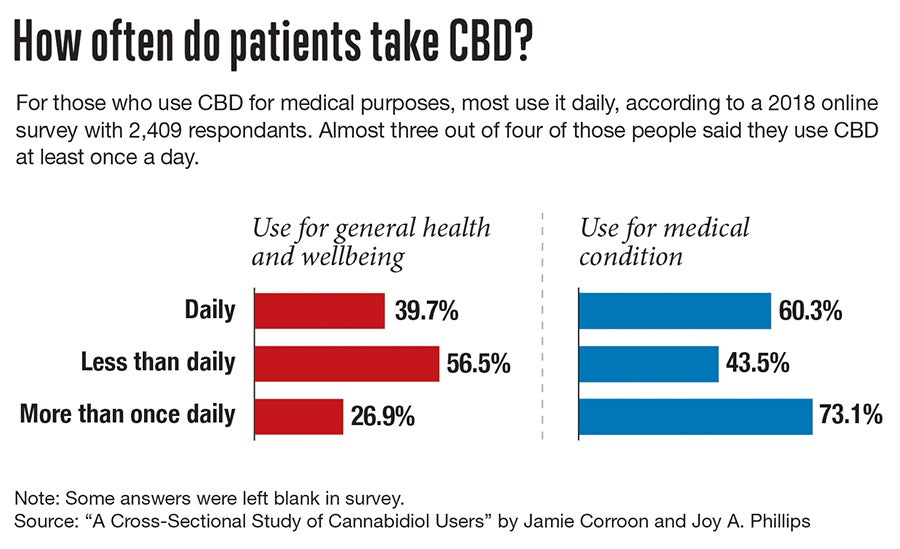
That’s opened the CBD market, joining with what’s become a far more permissive attitude toward cannabis use in general. Last fall, 62% of Americans said they supported legalizing marijuana, double the percentage who felt that way in 2000, according to a Pew Research Center poll.
Combined with how many people say they are regularly stressed – 55% experienced stress during a lot of the day, according to a Gallup poll released in April – and it’s not hard to see why CBD seems to be everywhere.
“I’ve seen an insane change in some of my customers,” said Summi Kharashqah, who works in sales for Amazing Superstore in Northborough. “Even if they want to call it a placebo effect, it still works.”
A Consumer Reports poll from January shows almost half of those who begin using CBD to replace a medication do so instead of taking an over-the-counter drug like Advil or Tylenol. Potentially more promising for the opioid epidemic, more than one-third said they stopped using a prescription opioid while taking CBD.
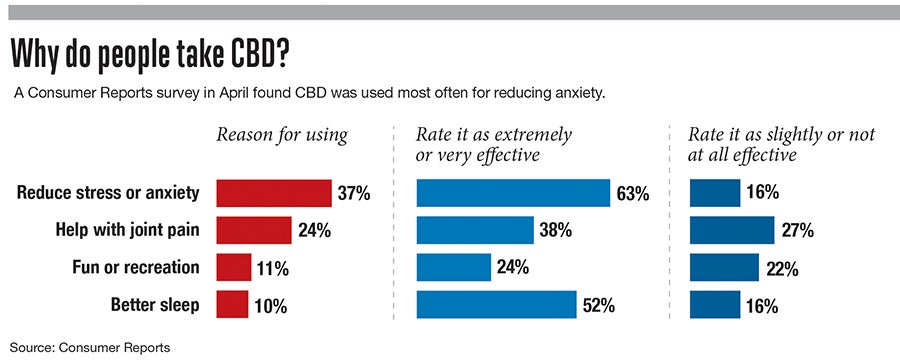
Unresolved science
With a new drug classification for CBD, the floodgates have opened for research into all kinds of conditions or ailment CBD may treat.
The U.S. National Library of Medicine tallies more than 500 ongoing studies into CBD: how it affects cocaine addiction, those with autism, cannabis withdrawal, osteoarthritis, graft-versus-host disease, epilepsy, schizophrenia and Crohn’s disease.
It’s a long enough list to make anyone question what kind of wonder drug could cure all of that.
“We don’t really know the long-term effects of its use,” said Dr. Anthony Izzo, a neurologist at Saint Vincent Hospital in Worcester who finds studies are not extensive enough.
Izzo finds CBD’s benefits to be largely a placebo, something to help patients if they believe it to help but something not known to be harmful.
“I don’t ever really dissuade patients from using it,” he said, “and I never really recommend patients go try it.”
Dr. Manuel Pacheco, a doctor of psychiatry at Tufts Medical Center in Boston, has similar reservations. Most beneficial claims are more anecdotal than scientifically proven, he said.
Pacheco attributes CBD’s popularity to patients wanting something without the side effects and potential interactions with other drugs.
“People want to try other things,” he said.
Studies have shown positive effects – for neurological disorders, schizophrenia and even psychosis, for example – but regulators and the medical community are cautious of how much CBD is responsible for those results.
Perhaps even worse, the FDA has said CBD products are often mislabeled for how much cannabidiol is actually in them. The FDA has sent nearly 50 warning letters since 2015 for products not accurately labeled.
Certain CBD makers have marketed their products saying they have been found to stop cancer cells, reduce withdrawal symptoms or slow the progression of Alzheimer’s, claims raising concerns at the FDA.
FDA Commissioner Scott Gottlieb said in April he was worried about manufacturers making such major health claims and the FDA is working to put in place new regulations.
In Massachusetts, no major regulatory moves have yet followed the federal changes. Gov. Charlie Baker’s administration is reviewing CBD regulations, while the Massachusetts Medical Society hasn’t yet issued any recommendations on its use.
Unproven, but still popular
Even while so much remains unsettled with CBD’s benefits, that hasn’t stopped users from turning to it for its supposed healing abilities. A Consumer Reports poll released in April found one out of four adults have tried CBD.
An increasing number of retail stores in Central Massachusetts sell CBD, from smoke shops to spas.
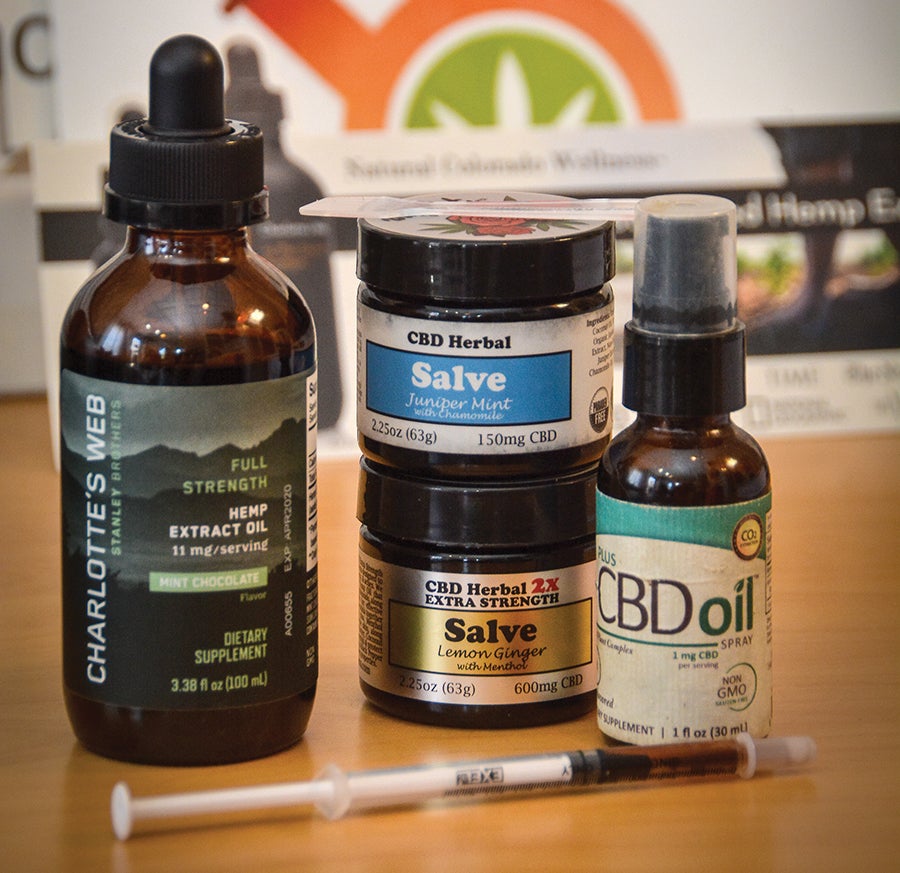
Turnpike Smoke Shop in Shrewsbury began stocking CBD around eight months ago, with customers saying they helped with anxiety, depression, and pain. Amazing Superstore in Northborough has regular customers for its CBD gummies, and bath and body products.
Kharashqah sees a more open-minded mindset on cannabis as a reason people are turning to CBD.
“You’re not just doing it to get high,” she said.
Downing, who began selling CBD products in 2013, dismisses talk of cannabidiol being ineffective or even potentially unsafe. He simply points to referrals he says he gets from doctors for a broad array of symptoms.
“I’m getting references from Dana Farber now,” Downing said of the Boston cancer center. “None of the hospitals would ever refer someone to me until the last four or five months.”
Izzo, the Saint Vincent doctor, said other doctors who don’t see CBD as such a panacea aren’t reluctant to recommend patients to holistic medicine. He recommends nutritional supplements such as riboflavin and magnesium for migraines, for instance.
“It’s not like we’re averse to non-prescription supplements,” Izzo said, contrasting CBD with more proven natural options. “Those have good scientific evidence behind them.”
